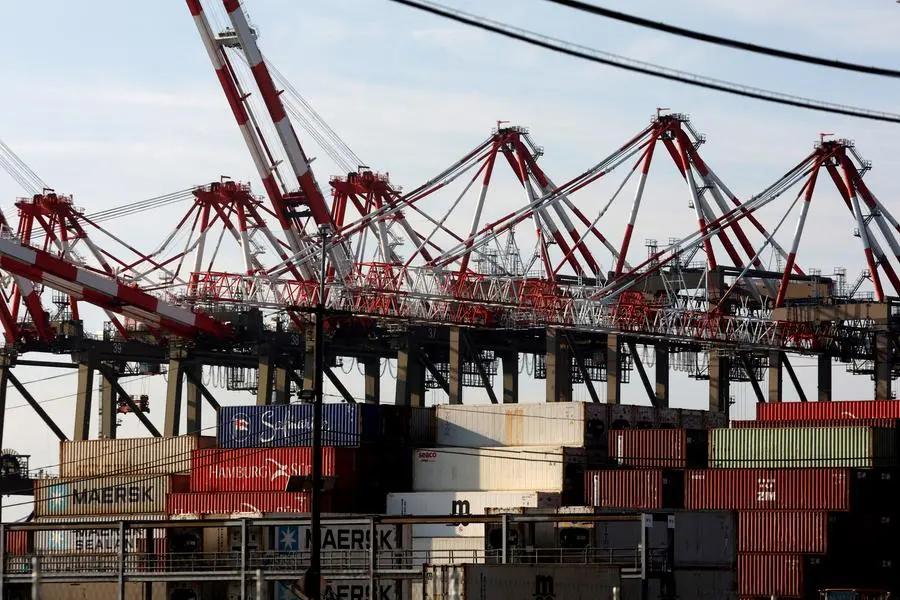PHOTO
East African countries have a small window to take advantage of market opportunities under the African Growth and Opportunity Act (Agoa), which expires next year. And if the agreement is extended by new President Donald Trump, it means that Rwanda, Kenya, Tanzania, and the Democratic Republic of Congo will continue to export certain products to the US duty-free.
The benefits are particularly significant for Rwanda, which rejoined Agoa after a previous suspension for violating certain principles, including a restriction on imports of US second-hand clothes.
According to the latest listing, Rwanda is among the 32 countries that are still eligible for duty-free exports, although it will still not be allowed to send apparel to the US market. Incidentally, Rwanda’s suspension was made in 2018 during President Donald Trump’s first term in office.
Uganda, South Sudan and Somalia will not be eligible for the programme next year, cited for violations including governance.
The US introduced the African Growth and Opportunity Act (Agoa) in 2000. It expires next year, having been extended several times. But there are signs that Trump will extend it, as there is a general bipartisan consensus in Congress to extend the agreement.
It gives eligible sub-Saharan African countries duty-free access to the US for more than 1,800 products, in addition to the more than 5,000 products that are eligible for duty-free access under the Generalised System of Preferences programme.
US Trade Representative (USTR) spokesman Sam Michel said that based on the results of the annual Agoa eligibility review, which included a public hearing in July that was chaired by the Office of the USTR, “President Biden has determined to maintain Agoa benefits for each country currently eligible under the programme.”“Therefore, the list of eligible and ineligible countries will remain unchanged for 2025,” said Mr Michel, in a statement released on December 21, 2024.
Rwanda was suspended in July 2018 from duty-free privileges on clothing in response to President Paul Kagame’s increase in tariffs on US clothing imports and a ban on used clothing imports, in order to promote the local clothing industry.
In 2016, Rwanda raised tariffs from $0.20 to $2.50 per kilo in an attempt to phase out used clothing imports.
Rwanda has signalled that it will not reverse the restrictions on the importation of used clothes and shoes, including those from the US, arguing that the move would boost its local manufacturing sector.“The notification by the United States on suspension of duty-free status for Rwandan apparel products under the Agoa followed a decision by East African countries to raise tariffs on second-hand clothing imports, in order to promote local manufacturing capacity in garment and other industries,” read the statement on Rwanda’s stance on US decision on Agoa.
While the decision was agreed by the East African Community member states, Kenya, Tanzania and Uganda succumbed to pressure from the US, choosing the economic benefits that accrue under Agoa.
Uganda’s suspensionHowever, this year, Uganda was also suspended from the programme.
On January 1, President Joe Biden’s administration struck Uganda off the list, citing “gross violations of internationally recognised human rights” by President Yoweri Museveni’s government.
In May 2023, the US government said it was considering removing Uganda from Agoa and imposing sanctions on the country after it passed a controversial anti-homosexuality law.
The law imposes a death penalty on people found guilty of engaging in certain same-sex acts.
But in a televised address on January 9, President Museveni scoffed at the US administration, saying such trade restrictions and pressure “have no meaning because Uganda is a country of wealth creators.”“Those putting pressure on us are just wasting time,” Mr Museveni said, adding that his government’s solutions to foreign pressure include fighting corruption and concentrating on regional integration so that Uganda “only trades with countries that respect us”.
Uganda’s suspension from Agoa does not mean that local exporters cannot send their products to the American market. The decision has only had a negative impact on the volume of Uganda’s exports by making them more expensive compared to Uganda’s competitors.
Over the years, Uganda has exported various products ranging from fish, footwear and leather products, dried fruits, banana products, tea, coffee, handicrafts, shea butter products, apparel, cow horn products, fruits and vegetables, Nile perch, vanilla, chocolate and flower cuttings.
In the 12 months to June 2023, Kenya’s exports under Agoa amounted to $268 million (47 percent of total exports to the US), while Tanzania exported commodities worth $47 million (40 percent of its total exports to the US).
In the same period, Uganda’s exports to the US under Agoa amounted to $ 8.2 million, just about 11.5 percent of its total exports to the US.
According to the USTR spokesperson, South Sudan has not been reviewed for eligibility because it has not requested designation as an Agoa beneficiary.“Somalia is still ineligible because it first expressed interest in consideration for Agoa eligibility in 2023,” the statement reads in part.
The President of the United States reviews and determines each country's eligibility annually.
The Democratic Republic of Congo (DRC) was reinstated as an Agoa beneficiary country in 2021. At the same time, the DRC was also declared an eligible 'lesser developed beneficiary sub-Saharan African country' for purposes of textile preferences under the favourable third country fabric rules of origin.
© Copyright 2022 Nation Media Group. All Rights Reserved. Provided by SyndiGate Media Inc. (Syndigate.info).




















